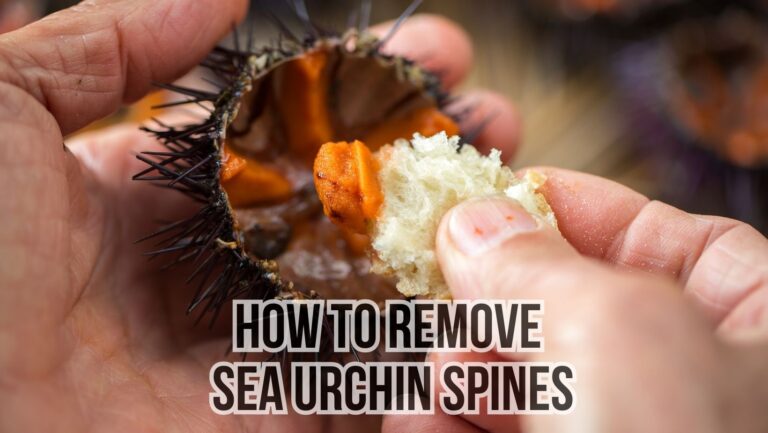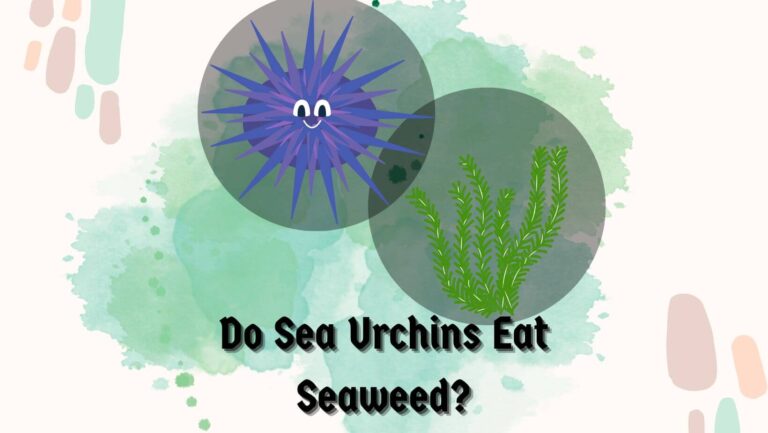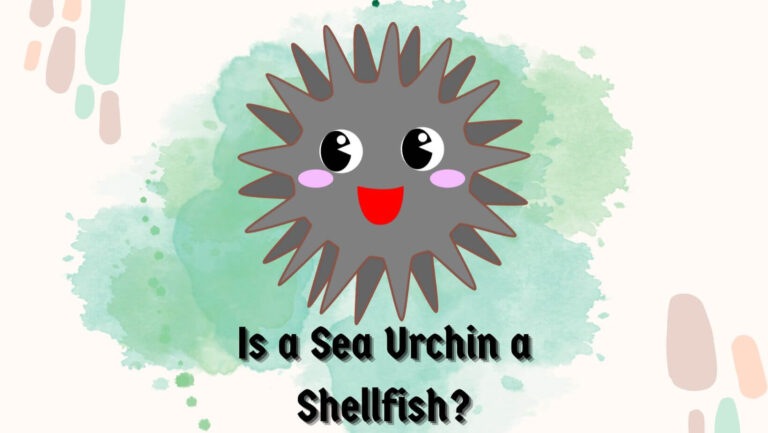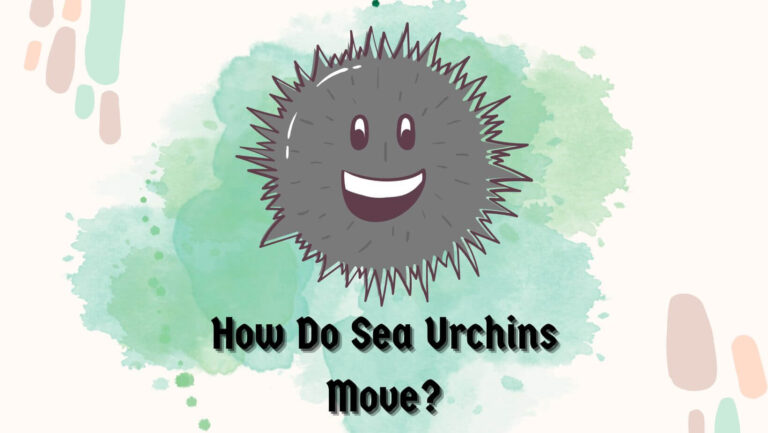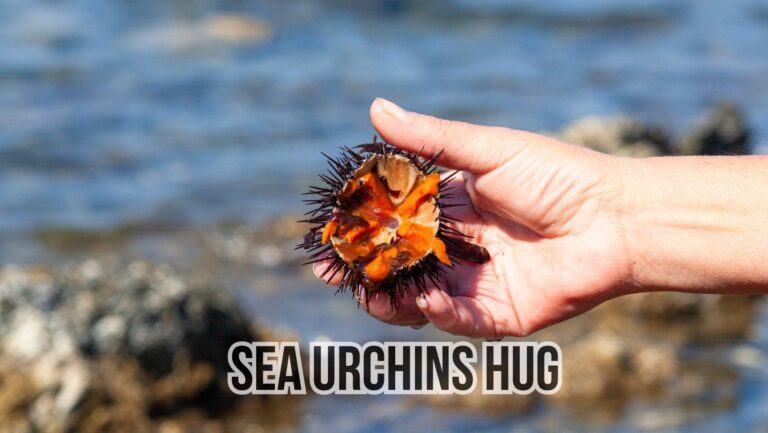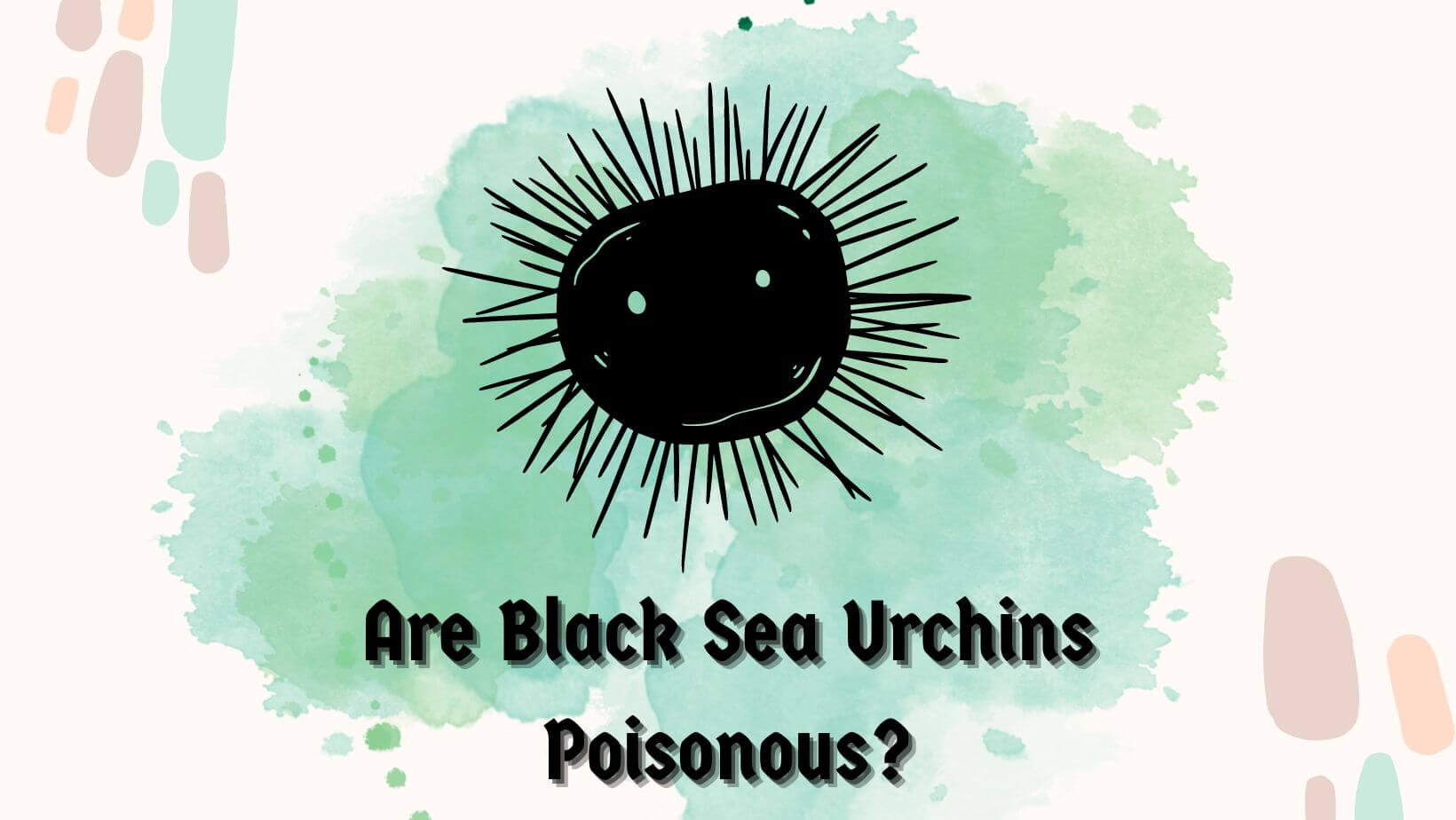
Undoubtedly, Black Sea urchins are intriguing marine creatures who inhabit our oceans. However, there is often confusion surrounding their toxicity. In this article, I will answer the most frequently asked question: are black sea urchins poisonous?
I will not only answer Is a black sea urchin poisonous?’ but we will also explore the presence of toxins, toxicity levels, health effects, prevention measures, and interactions with humans. But before I tell you all this, let’s start with the most basic question: are black sea urchins venomous?
Table of Contents
Are Black Sea Urchins Poisonous?

Yes, Black Sea urchins are known to possess toxins, the most notable being Tetrodotoxin. Tetrodotoxin is believed to be produced by symbiotic bacteria that reside in the digestive tract of the urchins and are responsible for synthesizing the toxin.
You might be surprised that Tetrodotoxin is a potent neurotoxin naturally produced by various organisms, including black sea urchins. Talking about the origin, Tetrodotoxin is believed to be produced by symbiotic bacteria associated with black sea urchins.
However, you should note that the distribution of Tetrodotoxin in black sea urchins can also vary among different populations & geographic regions. You should avoid swimming or diving in areas where the black sea urchin population tends to be abundant.
In the Marine world, black sea urchins use this Tetrodotoxin as a potent defense mechanism to deter potential predators like triggerfish or puffer fish. You should avoid touching the black sea urchin and maintain a safe distance because its toxin targets the nervous system, causing paralysis and potentially leading to death in predators that consume the urchins.
In addition to this, you should avoid eating black ones because they are highly toxic and can cause severe health effects. If you accidentally consume black sea urchins contaminated with Tetrodotoxin, it may result in symptoms like numbness, dizziness, respiratory distress, & even paralysis (of course, in rare cases).
However, we have also found that not all black sea urchins are highly toxic. The presence and concentration of Tetrodotoxin can vary from individual to individual.
Other Potential Toxins
Do you know that ongoing research is being continuously done to identify and understand other potential toxins that might be present in black sea urchins? Yes, there can be other toxins involved apart from Tetrodotoxin; these toxins, although less studied, may contribute to the overall toxicity of the species.
Also, you should know that the toxicity levels of black sea urchins may vary among individuals & populations (as I told you earlier). However, several factors may influence the concentration of these kinds of toxins within these fascinating creatures.
Few studies have shown that the level of toxins in black sea urchins may vary significantly among individuals. In some sea urchins, you may find it in higher concentration, while others may exhibit lower levels of toxins.
Surprisingly, some may even leg toxins altogether. In addition, you may also find variations in toxin levels among different populations of black sea urchins in various geographical regions.
The factors that may influence the toxicity levels of black sea urchins include the availability of toxin-producing bacteria in their environment, their diet, and genetic variations among individuals. To determine the potential toxicity of black sea urchins, you must understand and consider these factors in different contexts.
You May Also Like Reading
3 Health Effects & Symptoms
Indeed, you’re likely to suffer from various health effects and may experience different symptoms after consuming black sea urchins contaminated with toxins. Even though some restaurants serve black sea urchins as a dish, they thoroughly clean and prepare them.
If you consume black sea urchins, you may experience a few effects, categorized into localized reactions, systemic effects, & allergic reactions. Let’s discuss all these in-depth for a thorough understanding.
Localized Reactions
It would help if you never touched black sea urchins barehanded. You must encounter black sea urchins safely and touch them handily. If the toxin from black sea urchins comes into contact with your skin directly, localized reactions may occur. These reactions can manifest as irritation, redness, swelling, and pain in the affected area.
7 Systemic Effects
Apart from touching the black sea urchins, eating them has harmful consequences. Yes, ingesting black sea urchins with toxins can also result in systemic effects on our bodies. If you accidentally eat black searches contaminated with toxins likely to experience effects like:
- Numbness
- Tingling Sensations
- Weakness
- Muscle Paralysis,
- Difficulty Breathing
- Itching
- Respiratory Failure (Severe Cases).
Allergic Reactions
Some individuals have also complained about being allergic to specific components of black sea urchins, including their toxins. Suppose you have an over-sensitive immune system or a compromised immune system.
In that case, you may also experience allergic reactions, ranging from mild symptoms, such as itching & hives, to more severe reactions, like difficulty breathing, swelling of the throat, & anaphylaxis.
Prevention & Safety Measures
To ensure safety when dealing with black sea urchins, I highly recommend you consider certain precautions and avoid consumption risks. If you want to handle black sea urchins, I will highly advise you to follow appropriate safety measures.
As I told you earlier, you should never touch them barehanded. It is best to wear protective gloves and clothing to minimize the risk of direct contact with toxins in black sea urchins. Wearing protective gear is one of the crucial ways further to protect your skin from these kinds of potential exposure.
Also, it would help if you adopted proper handling techniques like using appropriate tools and avoiding unnecessary contact, which can help further reduce the risk of toxin exposure. Also, we should be careful when handling life or freshly harvested black sea urchins.
Avoiding Consumption Risks
If you are thinking of consuming black sea urchins, it is important to be aware of the potential risks associated with their toxicity. Even though some parts of black sea urchins, like its roe (gonads), are considered safe for human consumption when harvested from nontoxic ones, they must be properly processed & prepared.
You must also source sea urchins from trusted suppliers and ensure they adhere to proper harvesting & processing practices.
Employing proper cooking methods like thorough cooking or boiling will further help you neutralize toxins and reduce the risk of contamination. I will advise you to strictly follow established cooking guidelines if you want to prepare black sea urchins for consumption.
First Aid & Treatment
In case of toxin exposure or adverse reactions to black sea urchins, you must seek prompt first aid & appropriate medical assistance.
Immediate Actions
If toxin exposure occurs, the first thing you need to do is wash the affected area thoroughly with soap & water. It is further going to help you remove any residual toxins from the skin and can help minimize localized reactions.
Medical Assistance
You must also seek immediate medical assistance if you feel severe discomfort, pain, or symptoms like difficulty breathing, muscle paralysis, or allergic reactions. No doubt, Medical professionals are the best ones who can provide you with appropriate treatment & support in managing the effects of black sea urchin toxicity.
Management of Symptoms
You should first determine what kind of symptoms you are experiencing. It is important because medical professionals employ different treatment approaches to manage the effects of black-searching toxicity depending on the severity of the symptoms.
You should also note that a doctor’s treatment approaches can include supportive care, administration of antitoxins, or other targeted treatments.
Conclusion
So, now you know that black sea urchins possess toxins, with Tetrodotoxin being the most well-known. However, the levels of toxicity can vary among individuals & populations. You must maintain a safe distance from these creatures, no matter how intriguing they look, because exposure to their toxins can result in various health effects.
However, if you employ proper handling, cooking, and consumption practices, you can also safely enjoy and appreciate the culinary value of black sea urchins while minimizing risks. I have given my best to provide you with a thorough understanding of the presence of toxins, implement safety measures, and seek medical assistance when needed.
If you find this article helpful, then I recommend you consider sharing it. Your share is not only going to make people get answers to the question ‘Are black sea urchins poisonous’ but also help them maintain a safe and enjoyable interaction with these intriguing marine creatures. If this article was fun and informative, consider also checking out other articles. See you in the next post. Till then, take care and goodbye.

